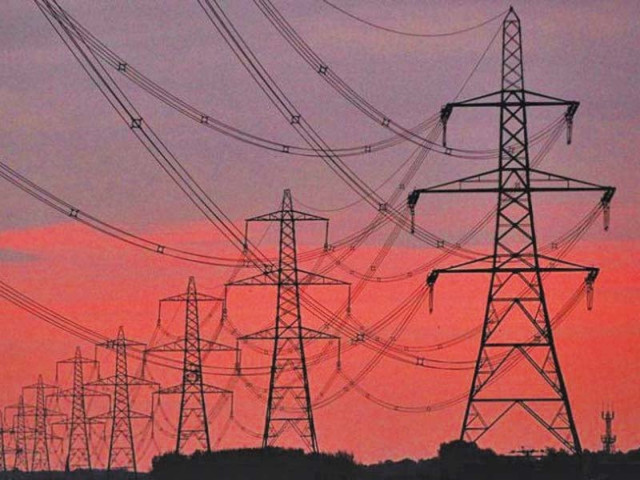Fuel cost revision: Government to stop providing relief in power tariff
Argues domestic consumers are already getting a huge subsidy.

In such a scenario, the category of domestic consumers using up to 100 units in a month would pay less than lifeline consumers – who consume up to 50 units – at Rs1.42 per unit. PHOTO: FILE
Now the government has decided to stop giving any tariff relief under the monthly fuel price adjustment and not to pass on the favourable impact of sharply lower international oil prices to the consumers.
However, it could face stiff resistance from the National Electric Power Regulatory Authority (Nepra) as the regulator insists that the government can implement the decision only after amending the Nepra Act.

“Policy guidelines are just a kind of advisory, therefore, the regulator is not bound to apply these,” a Nepra official commented.
In the past few months, the consumers got a relief of Rs3-4 per unit in the monthly fuel price adjustment following the plunge in oil prices, which have dropped about 50% since June last year.
However, government high-ups have now agreed that they will not offer any tariff reduction to domestic consumers, arguing that they were already enjoying a huge subsidy.
The Economic Coordination Committee (ECC) of the cabinet took the decision in its meeting held on May 21.
The meeting was told that according to the National Power Policy 2013, approved by the Council of Common Interests – an inter-provincial body – low-end consumers would be protected from price escalation.
Tariff rationalisation will be done to the extent possible in order to eliminate subsidy for the industrial, commercial and bulk consumers and create a level playing field by providing electricity at comparable prices to all industrial users.
The meeting was further informed that subsidy was provided to domestic consumers up to 300 units and to agricultural consumers at a flat rate. Of the total subsidy, more than 85% was provided to domestic consumers.
In accordance with Section 31(4) of Nepra Act, the tariff determined by the regulator is subject to monthly revisions under the fuel charge adjustment.
Prices are revised downward because of lower oil rates. However, in such a scenario, the category of domestic consumers using up to 100 units in a month will pay less than lifeline consumers – who consume up to 50 units – at Rs1.42 per unit.
At present, the tariff stands at Rs5.79 per unit for consuming up to 100 units and a reduction of Rs4.37 per unit on account of fuel price revision for February will result in a huge loss to the national exchequer besides causing tariff anomaly.
Owing to the tariff changes, the highly subsidised class of consumers will benefit heavily from lower oil prices, though the government is already paying a subsidy of about Rs95 billion annually or average Rs4.40 per unit in addition to the cross-subsidy to the domestic consumers using up to 200 units.
In order to avoid excessive benefits, the Ministry of Water and Power proposed the issuance of policy guidelines under Section 31(4) of Nepra Act, suggesting that any negative adjustment on account of monthly fuel cost revision would not be passed on to domestic consumers, who were getting subsidised electricity.
The ministry pointed out that similar guidelines had already been issued by the government for lifeline consumers and users of agricultural tube wells.
Published in The Express Tribune, May 28th, 2015.
Like Business on Facebook, follow @TribuneBiz on Twitter to stay informed and join in the conversation.



















COMMENTS
Comments are moderated and generally will be posted if they are on-topic and not abusive.
For more information, please see our Comments FAQ